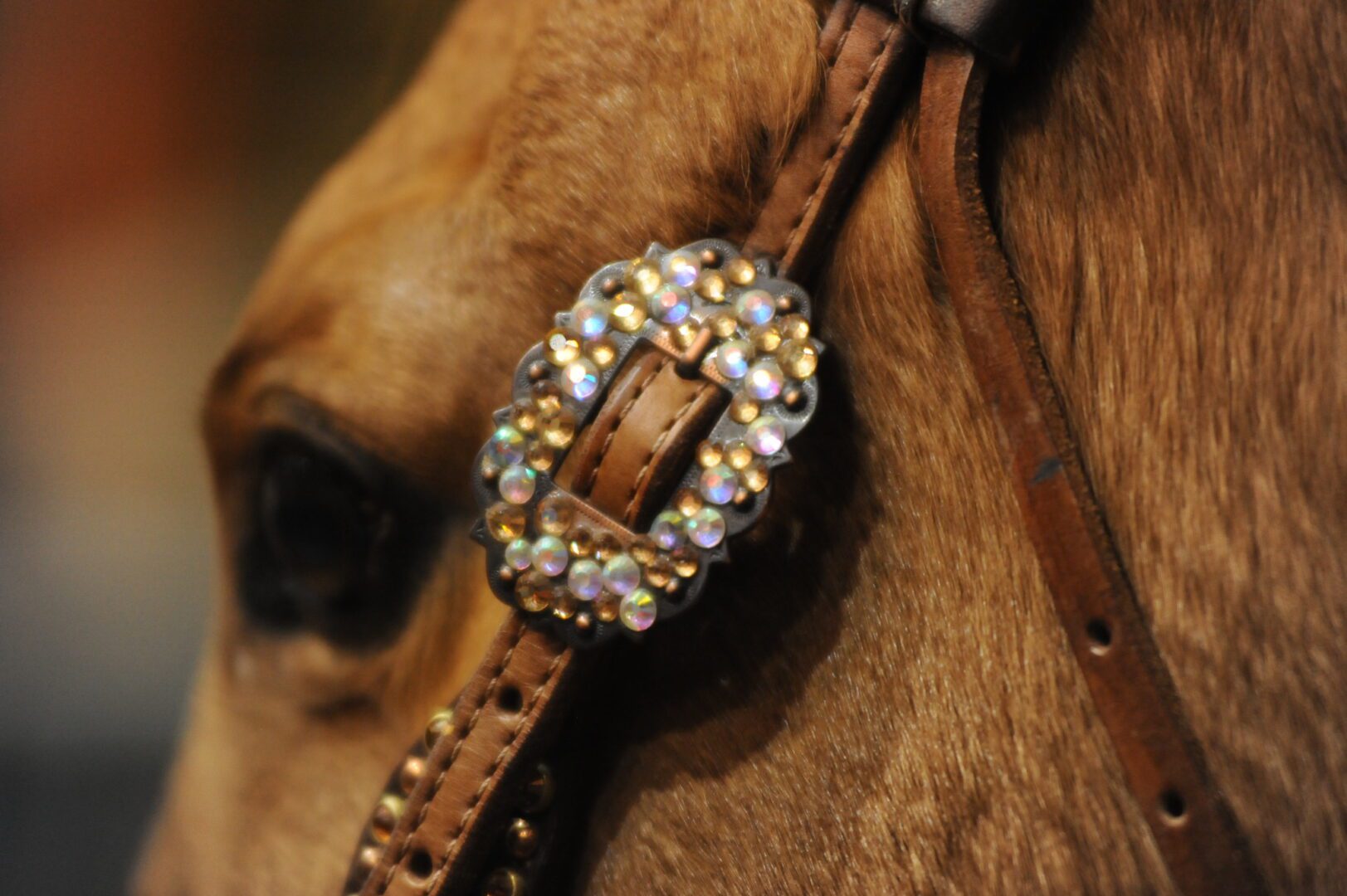by Juliet M. Getty, Ph.D.
Diet affects behavior. This makes sense. A well-fed horse is healthy. And a healthy horse feels good. Conversely, a poorly-nourished horse is suffering. A variation in hormone levels, for example, can have a temporary effect on how the horse sees the world. Just as reaction to sugar intake varies in humans, so it does in horses. Horses may feel ill or “off” from an overindulgence in sugar/starch, and they certainly have been reported to exhibit “sugar highs and lows” caused by the sudden surge and subsequent drop in blood glucose from a high carbohydrate (sugar/ starch) meal. Although there is, in fact, little scientific evidence that proves a sugar/starch-driven behavioral component, many horse owners will attest to their own horses showing adverse behavioral responses and will therefore avoid feeding anything that contains starchy cereal grains or is sweetened with molasses.
There are plenty of good reasons beyond the scope of this article to avoid high sugar/high starch diets, but in terms of behavior, what alternative does a horse owner have if the horse simply needs more calories to meet the added demands of exercise, work, and performing? Hay and grass simply cannot provide enough energy (calories) to support the these additional requirements.
The answer is fat.
Gram for gram, fat provides more than double the calories of carbohydrates or protein. And it is well digested. But there’s an added bonus! Fat has a calming effect on horses’ behavior.
Researchers at Virginia Polytechnic Institute1 noticed that horses fed a high fat diet are less reactive to startling stimuli and had lower levels of excitability and anxiety than horses fed a more traditional grain-based diet. The horses in their experiment received 15% of the total calories from fat, which is high for most horses. However, the study reveals that fat is worth trying if you have a sensitive horse who may become easily excited by everyday activities.2 (Please note: Ponies, minis, donkeys, and mules should not receive high fat diets.3)
What type of fat?
All fat has the same number of calories, regardless of the source. But from a health perspective, it is best to steer clear of animal fats, as well as oils that are have too many omega 6s (which increase inflammation) in relation to omega 3s (which have an anti-inflammatory effect). Oils high in monounsaturated fatty acids are a good source since they neither increase nor decrease inflammation.
Below are some commonly fed fat sources:
- Ground flaxseeds and flaxseed oil: Has a 4:1 ratio of omega 3s to omega 6s, making it an ideal choice
- Chia seeds: Has similar omega 3 to omega 6 ratio as flax
- Canola oil: 10% omega 3s and relatively low in omega 6s. Also contains monounsaturated fatty acids (no harmful impact on inflammation)
- Rice bran oil: Only 1% omega 3s, less than 50% omega 6s and high in monounsaturated fatty acids
- Copra meal and coconut oil: Not a source of omega 3s and omega 6s but rather medium chain fatty acids which may be beneficial when added to an omega 3 source
- Soy lecithin: Only 4% omega 3s but also contains choline, a helpful component of neurotransmitters
- Soybean oil: Only 7% omega 3s and mostly omega 6s (less desirable choice)
- Corn oil: No omega 3s and higher in omega 6s than soybean oil (poorest choice)
How much?
I prefer to limit fat intake to no more than 10% of the total calories, though some athletes are fed levels as high as 20%. For the lightly exercised, mature 1100 lb (500 kg) horse, the National Research Council recommends a minimum total diet of 20 Mcals per day to maintain body condition. Ten percent would be 2 Mcals per day from fat. One cup (8 fluid ounces or 240 ml) of oil will meet this requirement. It weighs 240 grams and at 9 kcals/g, provides 2.16 Mcals.
How to add?
When adding any amount of oil to your horse’s feed, start with a small amount (say, one tablespoon or 15 ml). Most horses do not like oily feed, but more important, it takes several weeks for the horse’s cells to become accustomed to metabolizing more fat.
Summary
Short attention span, spookiness, reluctance to work, excessive sensitivity and alertness to surroundings, irritability, and “hot” behaviors can be reduced by adding fat to the diet. Fat is high in calories, so limit the amount you feed based on the horse’s weight and his caloric need. Omega 3s need to be in balance with omega 6s, so choose oils carefully. And finally, build up to desired intake by starting slowly and increasing over 4 to 6 weeks.
Permission to reprint this article is granted, provided attribution is given to Juliet M. Getty, Ph.D. No editorial changes may be made without her permission. Dr. Getty appreciates being notified of any publication.
Juliet M. Getty, Ph.D. is an independent equine nutritionist with a wide U.S. and international following. Her research-based approach optimizes equine health by aligning physiology and instincts with correct feeding and nutrition practices.
Dr. Getty’s comprehensive resource book, Feed Your Horse Like a Horse, is available at www.GettyEquineNutrition.com — buy it there and have it inscribed by the author, or get it at Amazon (www.Amazon.com) or other online retail bookstores. The seven separate volumes in Dr. Getty’s topic-centered Spotlight on Equine Nutrition series are available with special package pricing at her website, and also at Amazon in print and Kindle versions. Dr. Getty’s books make ideal gifts for equestrians.
Find a world of useful information for the horseperson at www.GettyEquineNutrition.com: Sign up for Dr. Getty’s informative, free e-newsletter, Forage for Thought; browse her library of reference articles; search her nutrition forum; and purchase recordings of her educational teleseminars. Reach Dr. Getty directly at gettyequinenutrition@gmail.com. She is available for private consultations and speaking engagements.









